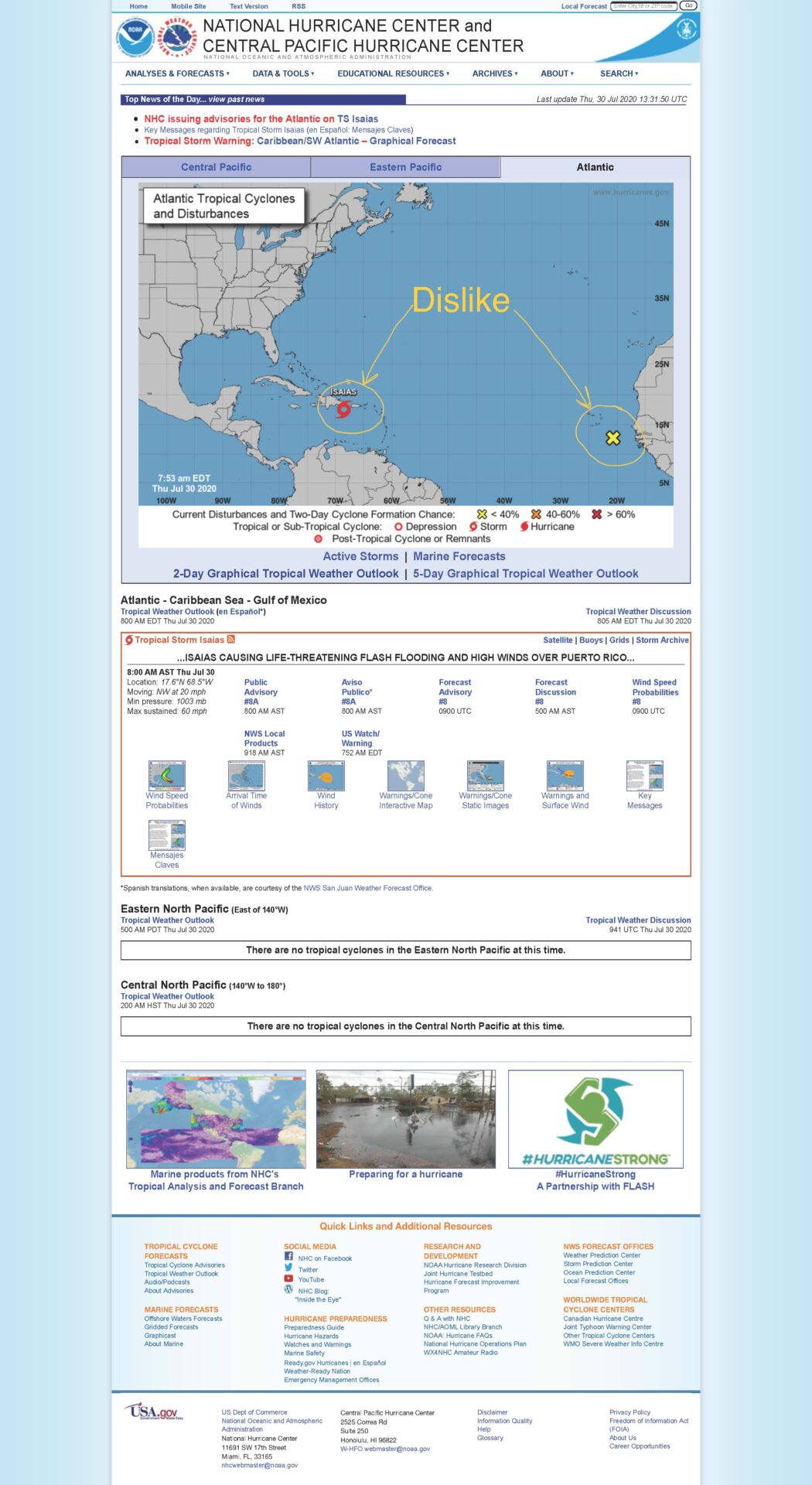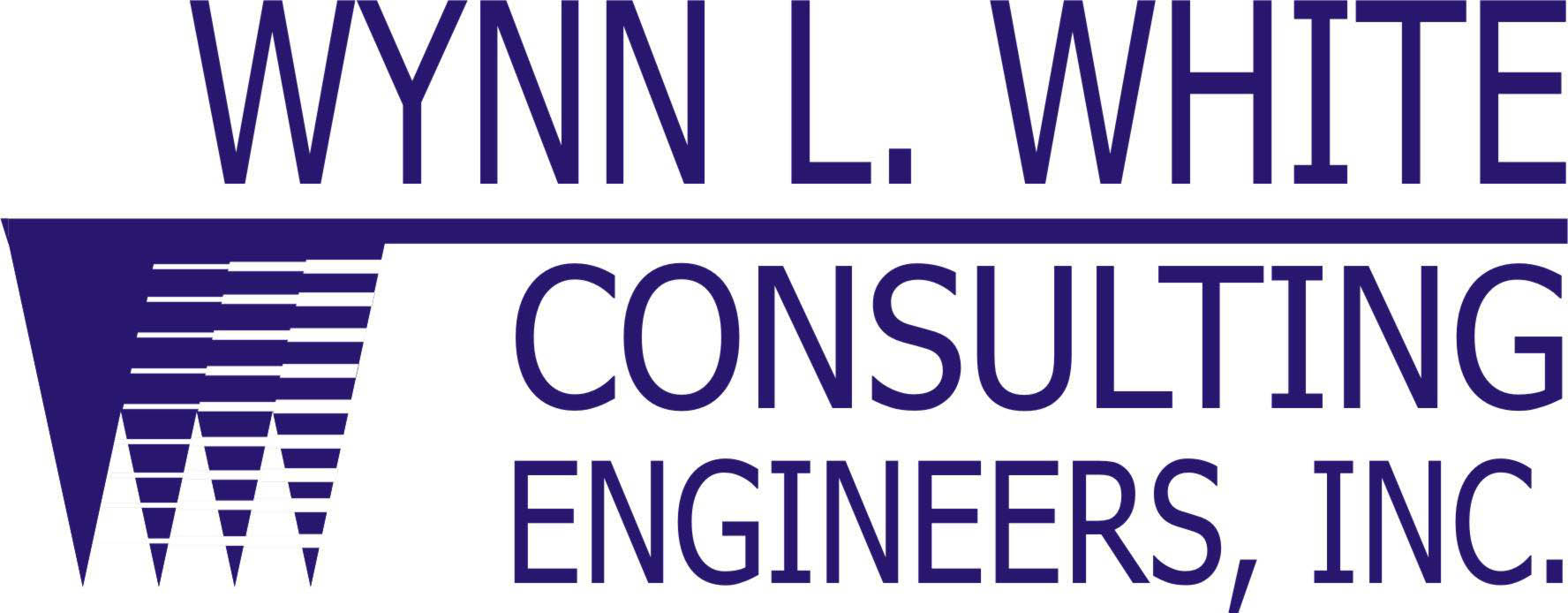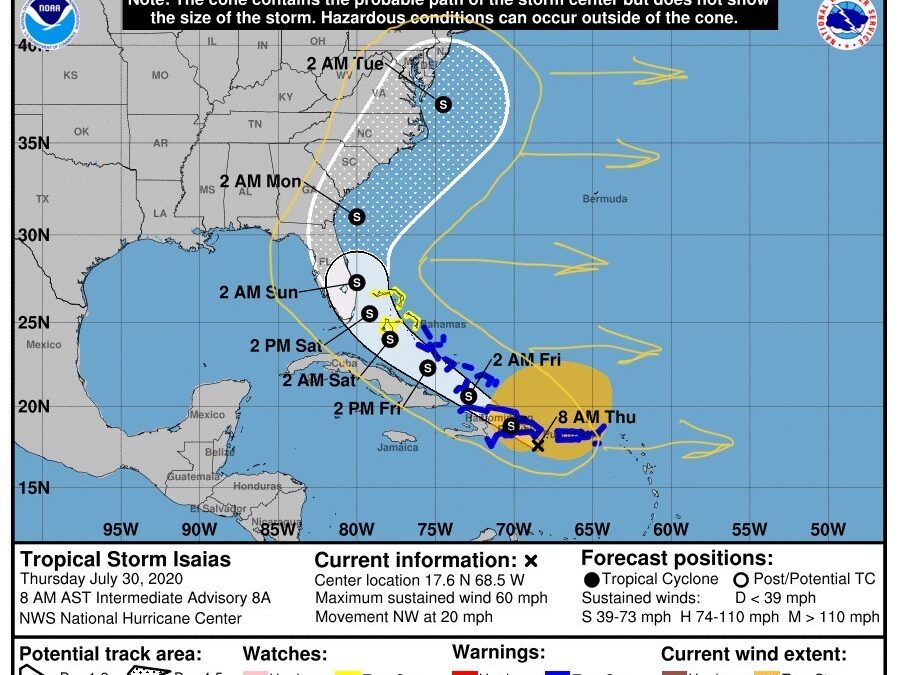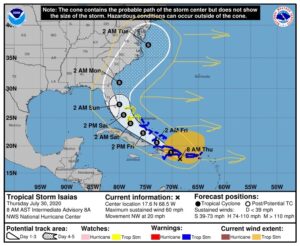
One thing’s for sure, 2020 hasn’t been dull. And just in case you’ve forgotten, it’s still hurricane season. As of this writing, this is the latest track on Tropical Storm Isaias. I hope the track changes and this thing blows out to see and plays itself out. But just in case I wanted to post some tropical storm tips.
If you’ve lived through storms, you may have become tone deaf to the whole “don’t let your guard down and prepare anyway” message. I understand that – but at the risk of being repetitive, it’s still a good idea to make sure you’re prepared. And there are some things worth repeating – even if it’s only to share information with others who don’t know what you know.
The best surprise is no surprise.
In the past, we’ve discussed the four phases of emergency management: mitigation, preparedness, response and recovery. Tropical Storm Isaias will make landfall soon, so we’ll soon move from preparation to perseverance, then recovery.
A quick resource for preparedness and recovery is FEMA’s web site.
The site has materials that will help you plan for a disaster, and a successful recovery.
No matter what, use caution in all aspects of preparedness, weathering the storm, and recovery. Be careful when setting up and running generators – getting fuel, storing the fuel, and running the generator. Just recently a family in Texas died from carbon monoxide poisoning because they were running a generator inside.
This storm season has an added degree of difficulty added in preparation and recovery (let’s hope little to no storm recovery is needed) due to COVID-19. For one thing, it may be more difficult to stock up on items. Maybe you already have a ton of toilet paper and other items stockpiled. But if you have to run out for last minute items, if nothing else the shopping experience is a bit different than we usual. Also, what about our older friends and family? If they’re reluctant (or unable) to venture out, you might need to budget some extra time to check on them and get them supplies. And if you’re unable to go into their homes and help them due to reducing COVID-19 spread, what do you do?
Good question – and even though Tropical Storm Isaias doesn’t appear to be a serious threat right now, it’s a good idea to plan and then act.
After the storm, implement your disaster recovery plan.
Be careful when moving around after the storm – driving and walking around can be hazardous due to flooded areas, downed power lines, and watch out for snakes and animals driven into areas we occupy.
Take care when entering storm damaged buildings. If you’re uncertain as to whether a structure is unsafe for any reason, stay out until you determine the area is safe for occupancy (or you can get a qualified person to help you make the determination).
I hope none of you need help with recovery, but if you do, remember that in a lot of areas first responders, utility companies, restoration contractors, and environmental contractors are hindered by reduced work force, social distancing, and overall workload.
We’re all stressed out and some of us are at our limit – please remember that when shopping, driving around, and dealing with others before, during, and after the storm. Tropical storms and hurricanes are stressful events even during a normal storm season. The last several months have seen skyrocketing rates of anxiety and depression. Tropical Storm Isaias will exacerbate this, depending on impact. This is easier said than done, but one of the greatest tools we have in storm preparation and storm recovery is patience. Another great tool is kindness.
Last (and by all means not least), don’t get complacent. Even though weather predictions may say that the storm will weaken, don’t take your eye off the ball.
There are all kinds of websites and apps for tracking storms, but you can’t go wrong with the National Hurricane Center’s website.
The site gets regular updates as the models and storm track changes. If you need help preparing or responding to an emergency, email me.
Your safety and well being are of the utmost importance to us. If we can do anything to help, you can call or email or even schedule a video conference with us.
Stay safe, my friends.


